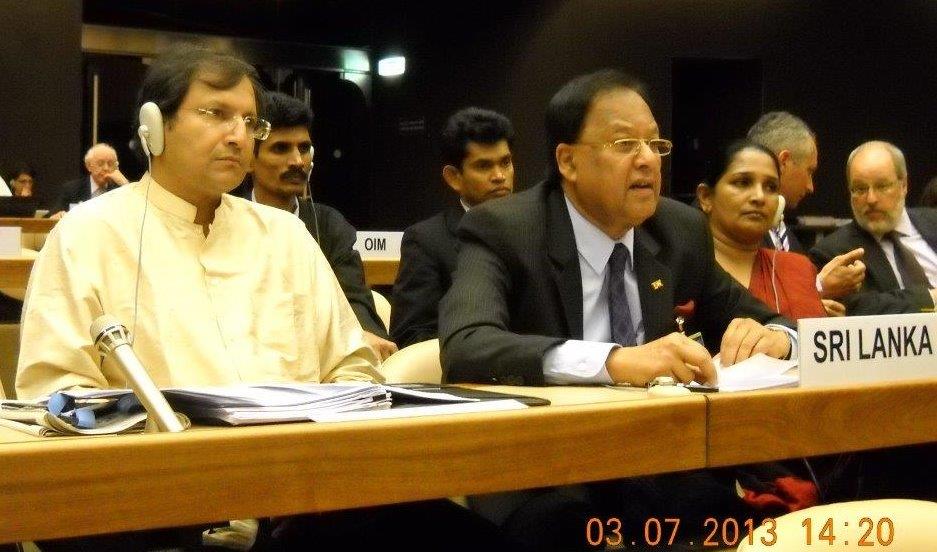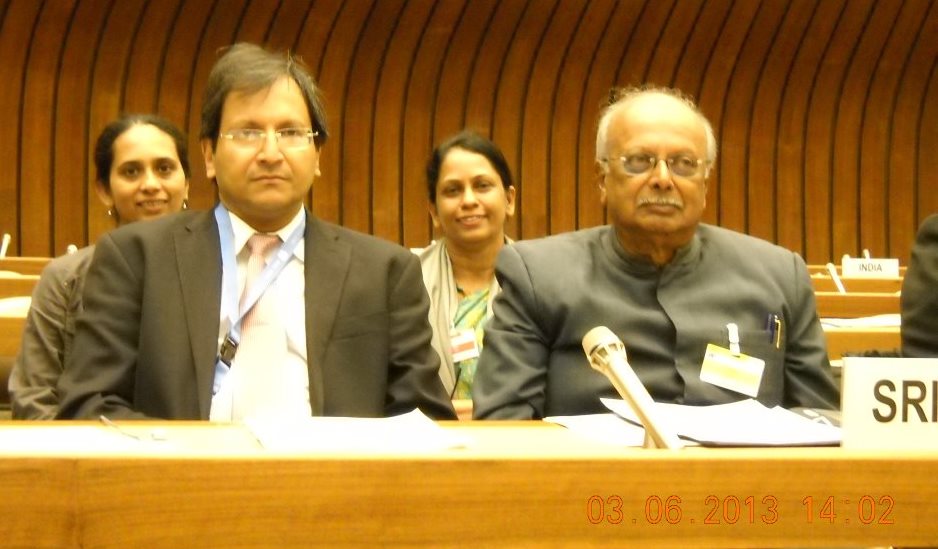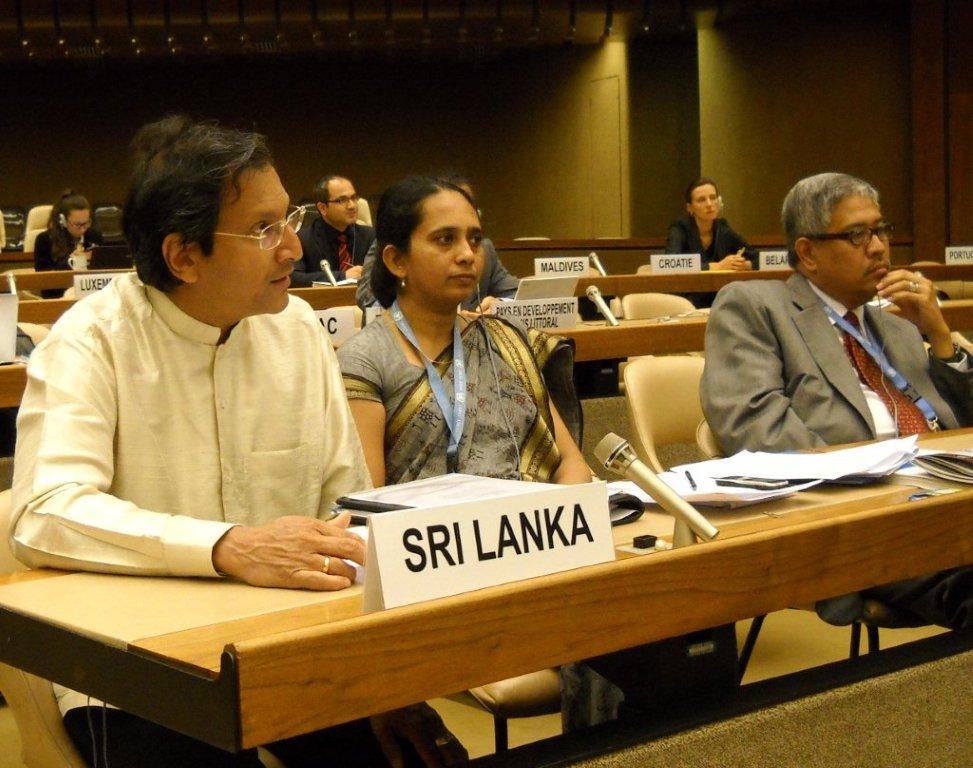Minister Amunugama says Sri Lanka is a trend setter in achieving Millennium Development Goals (MDGs)

Senior Minister of International Monetary Cooperation and Deputy Minister of Finance and Planning Dr. Sarath Amunugama has said in spite of a long drawn out battle against terrorism for nearly three decades, and being further constrained by the 2004 Asian tsunami and the impact of the global recession, Sri Lanka had been a trend setter in integrating Millennium Development Goals (MDGs) effectively in to the national development agenda and ensuring realization of these targets.
Minister Vitarana says SL expects to increase high tech value added exports from 1.5% to 10% by 2016

Senior Minister for Scientific Affairs, Prof Tissa Vitarana told the 16th Session of the Commission on Science and Technology for Development (CSTD) held in Geneva last week, that Sri Lanka which is now a middle income country expects to increase the contribution of high tech value added exports to the national economy from the present 1.5% to 10% by 2016 through the implementation of the National strategy for Science, Technology and Innovation. Revealing details of the national strategy he mentioned that in line with the target of doubling its per capita GDP to USD 4000 by 2016, the strategy is aimed at achieving effective social economic development, through research directed on national needs, use of advanced technologies and building a culture of techno – entrepreneurship between the public & private sector partnership.
On behalf of the G-15 member States, Ambassador Ravinatha Aryasinha emphasized that developing countries and the LDc’s need UNCTAD’s assistance now more than ever in designing policies for dealing with persistent and emerging challenges for development in the aftermath of the recent economic and financial crisis which has slowed the global economic growth.
Tamara Kunanayakam, Permanent Representative to the United Nations in Geneva, has been elected as a Vice Chair representing the Asia Group of the Trade and Development Board (TDB) of the United Nations Conference on Trade and Development (UNCTAD) at its 58th Session held 12 – 28 September 2011 in Geneva.
Mr. President
I am pleased to deliver this statement on behalf of the Asian Group.
At the outset we would like to thank Dr. Supachai Panitchpakdi, Secretary General of UNCTAD for his comprehensive statement. We would also like to thank Secretariat for its timely preparation of documentation which contain valuable recommendations that will certainly assist in our deliberations.
- Statement by H.E.Mrs.Sarala Fernando, Ambassador/Permanent Representative of Sri Lanka, Coordinator of the Asian Group -at the 2006 Mid-Term Review, First Formal Meeting -Geneva, 8-12 May 2006
- The key issues raised by Dr. A. Dayaatna Silva, Minister (Economic and Commercial) Head of Sri Lanka Delegation during the Adhoc Working Group on the General Standard and Food Additives (GSFA) and Codex Committee on Food Additives and Contaminants (CCF
- 39th session of the Joint Advisory Group on the International Trade Centre UNCTAD/WTO, Statement by Ambassador Sarala Fernando (Sri Lanka)- Geneva, 24 April 2006

